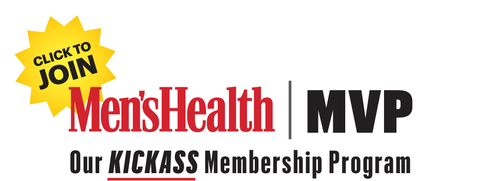This is Your Quick Training Tip, a chance to learn how to work smarter in just a few moments so you can get right to your workout.
Most guys in the gym view lifting weights as a means to a leaner, more muscular end. They don’t typically think about their training as a sport. But if you’ve ever entertained the idea of pitting your strength and power against those of others—and prefer competitions that involve barbells instead of atlas stones, kegs, and logs—two of the most popular options available to you are powerlifting and Olympic lifting.
But even if you never plan to turn pumping iron into a competitive event, understanding the difference between powerlifting and Olympic lifting can help you not only earn kudos around the weight rack, but also reach your fitness goals faster by informing the way you train.
If you’ve ever watched strength athletes compete on the international stage, you’re already familiar with Olympic lifting. The sport encompasses two events: the snatch and the clean and jerk. Both movements are complex and explosive, relying as much on power and technique as on brute physical strength.
Powerlifting is a different beast. It’s not an Olympic sport—and its name is a bit of a misnomer, as it relies primarily on strength, not power—but you’re likely familiar with its trio of events: the deadlift, the squat, and the bench press. Indeed, you probably perform some version of each exercise (collectively known as the “big three”) in your weekly routine if you’re doing any type of strength training.

But if you’re not prepping for a powerlifting meet, your routine could use some variety for the best possible results. For a truly balanced workout split, you should also take a page from the training manuals of Olympic lifters, rounding out your strength program (and athletic skillset) with moves that build explosive power as well.
Your move: Incorporate power-focused exercises in your workout plan a couple of times per week to go along with your strength training plan.
This primer on Olympic lifting is a good place to start, and it includes plenty of alternatives to the traditional lifts if you’re not quite ready to tackle the snatch and the clean and jerk. Also, make sure to fine-tune your form for the big three—your back squat, deadlift, and bench press can serve as the bedrock to your overall success in the weight room.
Source: Read Full Article
